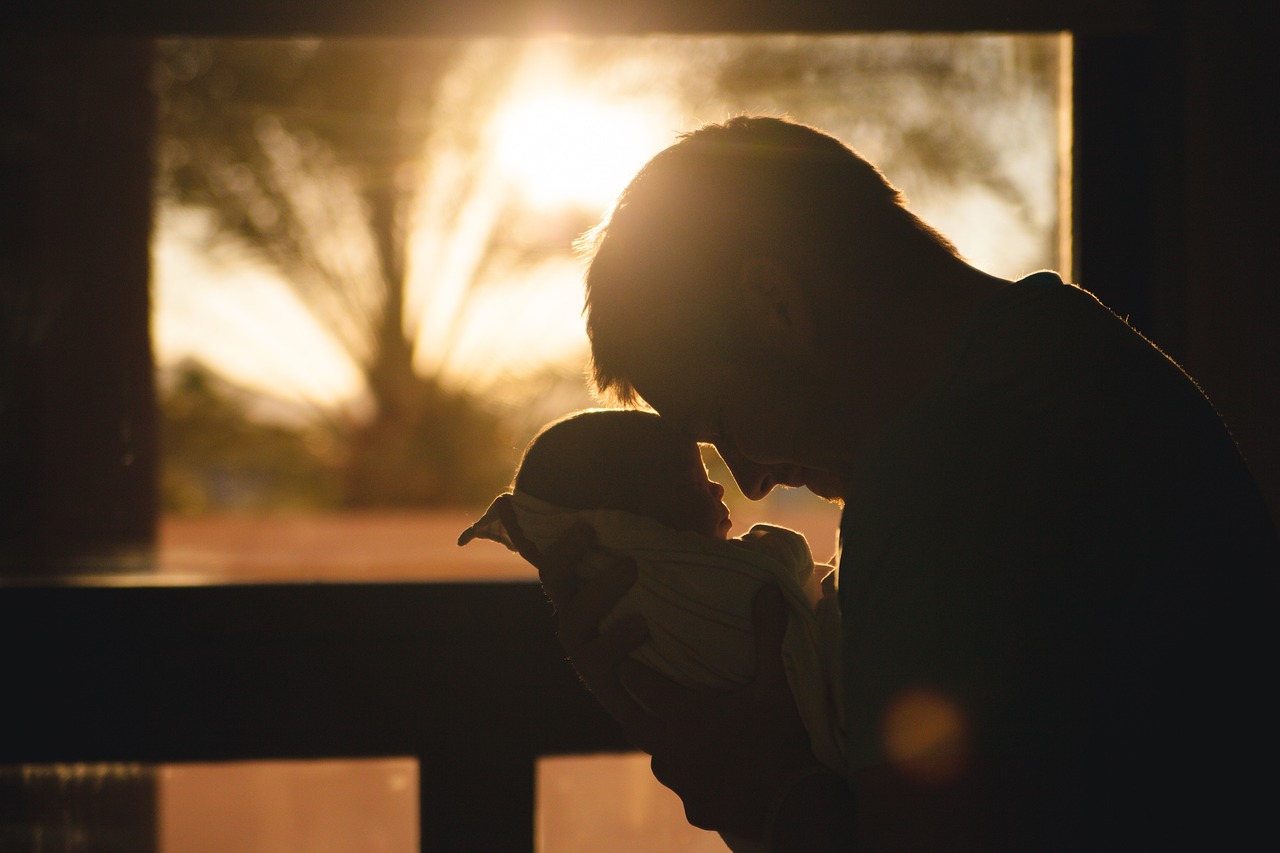In the comment section of one of the posts on the Cerebral Faith facebook page, Sam Burke commented “If I found out Christianity was true, I would do everything in my power to stop people from having kids so that more people don’t go to Hell. According to Matthew 7:13 only a few people will find the way to Heaven. Almost everyone who is born will end up being burned in eternal conscious pain for eternity according to the Bible. A trillion years and the person will not be a second closer to being out of Hell. Any parent who truly believes and understands this, and knows their kids will statistically probably end up in Hell, and has kids anyway hates them. Having children violates “love your neighbor as yourself” on that viewpoint. If Hell then Anti-Natalism.
And not to mention if the Age of Accountability is true we should conceive kids just for the sake of aborting them and therefore “populating Heaven.” And I am Pro-Life!! Or infants are damned unless they accept Jesus as their savior from the time they are born. Christianity is utterly hopeless, depressing, etc. No compassionate person could want Christianity and all that it entails to be true.”
Is this the case? If Christianity is true, does it entail that you should either abort your children or refrain from even having them? I’ve already dealt with the Age-Of-Accountability-Entails-That-Abortion-is-ok argument in this blog post here and in chapter 4 of my book A Hellacious Doctrine: A Biblical Defense Of The Doctrine Of Hell. So I won’t rehash those answers here. Rather, I’ll address the more modest argument that if Christianity is true, and if more people statistically end up in Hell instead of Heaven, then it’s basically our moral obligation to refrain from even conceiving!
First, God Has Made Salvation Available To All, Anyone Damned Has Only Themselves To Blame
Jesus said that “For God so loved the world that He gave His one and only son so that whosoever believes in Him will not perish but have eternal life. For God did not send His Son into the world to condemn the world, but that the world might be saved through Him. Everyone who believes in Him will not perish but whoever does not believe in Him is already condemned because he has not believed in God’s one and only son.” – John 3:16-18 (emphasis mine).
God The Father gave up God The Son (i.e Jesus) to die for the sins of the world! The Greek word translated “world” here is kosmos and it is most often used to either describe all of humanity, the entire planet, or the entire physical universe. If you are a part of the world, then God loves you and became a man to atone for your sins. I’m a part of the world. You’re a part of the world. Adolf Hitler was a part of the world. Osama Bin Ladin was a part of the world. The random person who drove by my house yesterday is a part of the world. Every human being is included in this passage. Moreover, whosoever out of the group that God loved (i.e the world) who places their faith in Jesus will not perish but have eternal life. Jesus said that God didn’t send His Son into the world to condemn it, but to save the world through him.
Because “God so loved the world”, he therefore “wants all people to be saved and to come to a knowledge of the truth” (1 Timothy 2:4), and is “not willing that any should perish but that all should come to repentance” (2 Peter 3:9). As a result of this love and desire, He “gave his only begotten son” and by that is meant that Jesus “gave himself as a ransom for all people” (1 Timothy 2:6, cf. 1 John 2:2, Hebrews 2:9).
God offers this salvation to all. We’re not able to accept it on our own (see John 6:44, John 6:65), so God sends His Holy Spirit to enable us and persuade us to receive His offer of salvation at the preaching of the gospel (Acts 16:14, John 12:32). This grace can be resisted (Acts 7:51), resulting in the persons own damnation if they continue to resist God’s grace until they die (John 3:36). The choice is up to you. Will you resist The Holy Spirit or will you yield to Him?
God became incarnate, died on the cross to take the punishment we deserved and then rose from the dead. God sends grace to all people to draw them to salvation. Some choose to resist God’s grace and others choose not to. The ones who resist cannot indict either God or their parents for the choice they made. They have no one to blame but themselves. This is why it is often said that God doesn’t send people to Hell, but rather, people send themselves. No one who ends up in Hel l has to be there. Their damnation could have been avoided.
Secondly, He Is Assuming That Parents Have No More Say In The Eternal Destiny Of their Children Than Birthing Them.
Sam Burke is assuming that parents have no more say in the eternal destiny of their children than merely birthing them and letting them decide for themselves. However, Proverbs 22:6 says “Train up a child in the way he should go; even when he is old he will not depart from it.”
It is generally true that if you raise your child right, he’ll grow up right. Theologically, one should expose their children to sound doctrine at a young age, and teach them apologetics from a young age. You can start with having them read books like “The Case For Christ For Kids” by Lee Strobel, “The Case For Faith For Kids” by Lee Strobel, “The Mystery Of The Picture: Where Did The Universe Come From? Did It Come From Nothing?” by Mary Katherine Mammen and Neil Mammen, and “The Awesome Book Of Bible Answers For Kids” by Josh McDowell and Kevin Johnson. When they enter high school, you can move them on to more advanced material like the regular “The Case For Christ” by Lee Strobel, “My Redeemer Lives: Evidence For The Resurrection Of Jesus” by Evan Minton, and others. See my blog post “Teach Your Children Apologetics” for a larger list.
While your kids should look at the evidence for Christianity’s truth, You should be a well informed Christian and be able their questions as well. As J. Warner Wallace once said, you are the first apologist your child will ever be exposed to. I think fewer young people would leave the church if we were prepared to make a reasonable case for Christianity instead of emphasizing feeling based experiences, and (this especially goes for youth pastors) entertainment. When I become a father, I will ensure that if my child grows up and apostatizes, it won’t be for intellectual reasons (John 3:19-20).
The answer to the problem of your offspring going to Hell isn’t to refrain from having them, but to make sure that they know the Living God.
Thirdly, While Jesus Said More Would Be In Hell Than Heaven, He Never Gave Exact Numbers
You have no idea the ratio of damned to saved and neither do I. It’s difficult to read Matthew 7:13-14 and not get the idea that Jesus said there would be more damned than saved. However, Jesus didn’t give an exact ratio. For example, Jesus never said that for every 1 person who is saved, 100 are lost. For all we know, for every 1 saved, only 2 or 3 are lost. You can’t calculate the probability that your offspring will, by the end of his life, have spurned The Holy Spirit. We’re not in a position to tally the exact number of saved to lost. All Jesus said is that many would enter the death gate and few would enter the life gate. That’s not exactly what I’d call mathematical precision.
Revelation 7:9 observes, “After this I looked, and behold, a great multitude that no one could number, from every nation, from all tribes and peoples and languages, standing before the throne and before the Lamb, clothed in white robes, with palm branches in their hands.” Millions and millions of people will be in Heaven from all over the world.
Finally, Annihilationism Is An Option
Burke’s criticism presupposes a very specific view of Hell; the Eternal Conscious Torment view. However, what if Annihilationism is true? Annihilationism is the view that the damned do not, in fact, suffer eternal conscious torment. Rather, on some forms of annihilationism, they suffer for a little while are eventually annihilated, or they annihilated immediately upon being judged by God. Thus, annihilationism is absolutely no different than Atheism and Deism concerning the afterlife. The only difference is that Atheists and Deists believe that everyone is annihilated, whereas the Christian annihilationist only believes some are.
Since I do not adhere to annihilationism, I have tried to respond to Burke’s argument while presupposing ECT. However, in the case that Burke or others find my response unsatisfying, I would advise them to look into the case for annihilationism. I don’t want Burke or others to reject Christianity on the basis of a secondary doctrine that I could be wrong about. If I did that, I’d be no different than Christians who require people to give up assent to Darwinian Evolution. If I’m wrong and annihilationism is true, then it has even less force than it would on ECT.
Share this:
- Click to share on Facebook (Opens in new window) Facebook
- Click to share on X (Opens in new window) X
- Click to print (Opens in new window) Print
- Click to email a link to a friend (Opens in new window) Email
- Click to share on Pinterest (Opens in new window) Pinterest
- Click to share on Reddit (Opens in new window) Reddit
- Click to share on LinkedIn (Opens in new window) LinkedIn
- Click to share on Tumblr (Opens in new window) Tumblr
Discover more from Cerebral Faith
Subscribe to get the latest posts sent to your email.





I just subscribed o your blog after some poking around on your site. I find your mix of traditional established Western Church orthodoxy together with accommodationist and evolutionary creationism curious and intriguing.
I am wrestling right at this moment with ECT as well as the essential character of God.
I belong to a fundamentalist Baptist church in the Philippines and love the fellowship but feel stymied by the doctrinal conformity and anti-intellectualism. I’ve come to Christ at age 51 by His saving Grace and after coming to the “end of myself” with alcoholism and existential despair.
The love I feel and the Grace I received is the anchor of my faith. But I finding with extensive and broad inquiry that I need to view the Cross as the fullest testament of God’s redeeming Love through the self emptying of His Devine powers to humble Himself for His creatures and His broken creation. It is broken because in order to allow free-will and natural law He is willingly self constrained in Love to allow for our fullest consent and participation. The incarnation is His Love manifested to allow His creation to be reconciled to Him.
Christ is the fullest revelation of His Devine Loving nature. Like the prodigal Father he has His arms wide open and will only reform and rehabilitate out of Love with His purifying burning Love.
I may be wrong but this is the God I can worship. It is consensual and not coercively placed on me through the threat of ECT. I am a willing participant in His Kingdom and I willingly and desperately allow for Christ Jesus to abide in me. I seek to model my life in His example and allow myself to be self emptying and see the true blessings of His Kingdom.
Brad Jersak’s “A more Christlike God” has been hugely influential in pushing me to this perspective. However, as a baby Christian my walk is not finished. I will order your book on Hell to help me attain a balanced understanding and always asking the Holy Ghost to guide me.
Blessings brother.
Wow! That is an awesome testimony! Thank you for sharing it. Our God is great and awesome! By the way, I hope you find this site and my book helpful in your Christian walk. God bless you. 🙂
(Note: this only an objection to a specific belief about Hell combined with Christianity. This is NOT against Christianity in general. I was wrong to argue that in my initial comment.)
Point 1. I will address it it both as it is, and I will address the ‘veto power’ objection which you could raise. Parents may not be blameworthy for what their kids choose, but they are responsible for bringing them (and ultimately their children) into such a dangerous situation with such a high temptation to choose wrong. And even more, regardless of who is responsible it is still more compassionate to not have them.
For the possible objection that it is unfair for those who will choose to reject Christ to have veto power over those who accept him I have a response. Given Christian doctrine fairness has little to do with it. Christians are very careful to emphasize that people are not saved because of anything they did to deserve it. People do not earn salvation and deserve the opposite. If they did earn salvation your objection would have merit. Since they strongly don’t deserve this opportunity, any objection based on the fairness of this treatment is irrelevant.
2. This is actually an argument for my position (or at least a lesser version of it). If being raised by the right parents lessens the likelihood of a person being damned and increases the likelihood of the person going to Heaven then why not adopt? Why open another person to the risk of Hell when you can reduce the risk for another person who already exists? As long as there are people you can adopt and increase the likelihood of them going to Heaven, having kids seems far less moral.
And even more, your children will probably have kids who will continue to have kids. Will they be careful to teach their kids apologetics? Will their kids? Ultimately having kids will probably result in more people going to Hell. A final point here is that it would be very good if the government decided to sterlize everyone if ECT is correct. Since overall it would result in less people having kids.
3. I don’t see the relevance.
4. I agree that annihilationism doesn’t have this problem. I know that is what you now believe so this objection is irrelevant to you. I am undecided about whether annihilationism is biblical, so I won’t let it prevent it from making me Christian unless I come to the conclusion that the Bible teaches ECT.
I think we ought to confine discussion on this topic to one thread. So point 1, I address in response to your comment in the comment section of the blog post “Q&A: (Follow Up On) Molinism, God’s Love, and Those That Will Never Be Saved” –> https://cerebralfaith.net/qa-follow-up-on-molinism-gods-love-and-those-that-will-never-be-saved/
–
2. I’m actually seeing a problem with automatic infant salvation, though I’m not as persuaded as you are of the argument that we’re doing them a favor by preventing their damnation. My real issue is that they are never given the opportunity to make a free choice for or against God, thus I’m now more favoring a view that could be called “Baby Limbo”. Jerry Walls defends this idea in his writings. Tim Stratton talks about this in his blog post “What About Babies Who Die?” on the Free Thinking Ministries website. I highly suggest you check it out. I think it would do away with this objection. –> https://freethinkingministries.com/what-about-babies-who-die/
–
3. Because you seem to think the saved-to-damned ratio will be vastly disproportionate.
–
4. I highly recommend the book “Rethinking Hell: Readings In Evangelical Conditionalism”. For an in-depth study, I recommend “The Fire That Consumes” by Edward Fudge. Of course the RethinkingHell.com website has blog posts and podcast episodes available for free. I think the case for annihilationism is overwhelming. So overwhelming that I’m embarrassed that I held to the traditional view for as long as I did. It’s just so obvious from the text that I keep asking myself how I could have missed it all this time.
Point 1 is something I was granting for the sake of argument on the other post. I may have missed it, but I did not see my counterargument about Christian doctrine of salvation being unmerited mercy refuted on your link.
Point 2. I didn’t say anything about babies who died. I instead argued that if you are correct about parents having a significant impact on the fate of their children, that it actually gives you even more reason to not spend that impact on bringing new people into the world when you could instead use it on people who are already here via adoption.
I also argued that your children will probably have kids who will in turn have kids and they will likely stray after a bit. And that this implies that it is therefore more likely that you having kids will ultimately put more of your descendents in Hell then Heaven. (Given the fact that most people who exist go to Hell the multiplication of descendents will result in a higher amount of the damned then the saved.) And finally that it is still a good idea for Christians to support measures that will result in less and less kids, like sterilization and birth control. I don’t see what any of that has to do with what happens to babies who die.
Point 3. Ok.
Point 4. Sounds interesting.
I see. I think I might have confused this with another post. It’s been a while since I read the contents of this article (I usually read my own article when proofing and then never again after that). Skimming the article, I see you didn’t mention anything about infant salvation and infant damnation and so on. My mistake. I do think you brought that up at some point in the past though, but maybe I’m thinking not only of another post but even another person entirely.
Anyway, your ACTUAL argument could just as well go in the other direction. By choosing NOT to have kids, I’m thereby giving less and less of my potential descendents the opportunity to know and enjoy God forever. You can’t appeal to omnscience to buttress your point this time, as we’re not dealing with what God knows but with what we as potential parents know. For all I know, my children will become evangelists who will convert many souls to Christ. One of them might be the next Billy Graham or William Lane Craig. Maybe we’ll write a book together as Josh McDowell did with his son Sean. There’s no way for ME to know whether my offspring or their offspring or their great-great offspring will or will not know God.
To be fair I initially I argued that ECT + the age of accountability entails that abortion and infanticide are good, (which I think you have refuted) or (my revised position) at least good for the child in question and therefore that Christians who believe in ECT + the age of accountability can never consistently oppose abortion because of any harm TO THE CHILD. (Actually annhilationism doesn’t help here, but Tim Stratton’s solution does eliminate the issue.) However
Point 2. Yes you will be depriving those descendents of the chance to experience Heaven. (A Heaven they deserve to be eternally separated from according to Christianity.) However you will almost certainly prevent more of your descendents from being tortured for eternity by refraining from concieving.
For the claim that they MIGHT save millions of souls, the obvious response is that they might do things that result in the damnation of millions of souls as well. The good and bad children MIGHT do shouldn’t be a factor here. If I were debating a non-Christian anti-natalist I would never bring up the argument that the child might do tremendous good, unless they used the “they might do tremoundous bad” argument. The risks more or less cancel out as far as we can tell.
Yes, but we don’t know either way. You might as argue that one ought to always stay home because they don’t know whether they will be in a car accident the next time they leave home.
If you knew that most of your car trips would probably end in accidents would that anology work?
If you had an infallible statistic that states that many drivers who drive will perish and few will gain great rewards that would be a better anology.
And The Bible gives such a statistic? Where is an exact percentage given? Are 70% lost? 80%? 90%? What if it’s only 51 percent? You can’t use the Matthew 7 text for support. If I knew 60% of car trips ended in accidents, that would just make me an extremely defensive driver. Where exactly do you draw the probabilistic line? And how do you know if those who will perish in the actual world cross that line? How do you know simply from the very broad and general contrast of “many” and “few”?
The percentage is never given. The text says “many” and “few.” That seems to indicate more then 51 percent. If I say many will perish and a few will live, you would accuse me of abusing language if I meant 51 to 49 percent, would you not? 70 percent would be possible though. Yes you could be a cautious driver, but would you take that risk for your kids? Their descendents?
But one percent can contain many things depending on the sun total. One percent of all the cookies in the jar might only be 2 cookies. But one percent of every person who will ever live? That be millions of even billions. Of course, how do we know it’s 51%. Scripture doesn’t say. Is it 55%? 60% we don’t know, and that’s the point.
–
I would raise up my children in the way they should go. I would teach them the gospel, sound doctrine, and apologetics. And if they forsake God, that would break my heart, but I would know that I did all that I could and that ultimately they are responsible for their own choices. (Deuteronomy 6:5-9, Proverbs 22:6).
As I have argued above, a few does not equal 49 percent in normal language. But even if that was the case, as you point out that means millions or even billions more people will go to Hell then Heaven. And given the number of future descendents in all probability, more will go to Heaven then Hell even if the number is 51 percent. And arbitrarily assuming that the number is less then 70 percent, that means their is only a 1/20 percent chance that the number of the Hellbound is 51 percent. And only a 5/20 percent chance that it is between 51-55 percent. Not good odds.
It isn’t just direct Children that are involved in the problem they will probably have children who will in turn have children, etc. And as both of us have pointed out, this objection doesn’t apply to you.